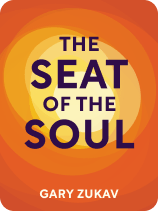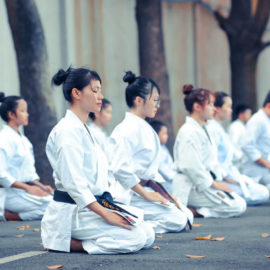

This article is an excerpt from the Shortform book guide to "The Seat of the Soul" by Gary Zukav. Shortform has the world's best summaries and analyses of books you should be reading.
Like this article? Sign up for a free trial here .
What is the purpose of the soul? Why does it manifest in our bodies?
In The Seat of the Soul, Gary Zukav argues that the soul’s main purpose is to evolve. It does this by learning, healing, and balancing. It might take several bodily manifestations for a soul to complete its purpose.
Read more for Zukav’s discussion of the soul’s journey.
The Purpose of the Soul
According to Zukav, we all have an immortal soul dwelling within us. But what is the purpose of the soul in manifesting in the material world, in our bodies? Zukav says that the main purpose of the soul in coming to live on Earth is to evolve. However, this is a spiritual evolution, rather than a biological one. He says we typically understand evolution as a physical process of species moving toward greater complexity, but there is also a spiritual evolution taking place—the evolution of our souls.
Zukav says that all souls in the universe are evolving, but only some have to do it through material manifestation. He explains that the purpose of the soul’s journey in the material world is for it to learn lessons, heal, and balance its karma. The soul needs to enter a series of bodies, he says, and live out many lifetimes to experience many different aspects of material life in order to heal itself. So, being a vehicle for our soul’s evolution is actually our purpose in life, though we often don’t recognize that because we’re not attuned to our souls.
| The “Masters” and the Soul Zukav doesn’t explain why, or from what, our souls need to heal. But in Many Lives, Many Masters we can find some ideas about the soul’s incarnation that are similar to Zukav’s. In this book, psychiatrist Brian Weiss describes the experiences of a patient who appeared to have past life memories and who received guidance from spiritual “masters.” Weiss says, according to those “masters,” the purpose of life is for the soul to learn universal values, like love and faith, through its experience in corporal form. He says that physical incarnation is necessary because we need both spiritual wisdom and intellectual knowledge to understand all of life’s lessons, and that intellectual knowledge can only be gained with the mind/brain. Like Zukav, Weiss also says that the soul exists within a system of karma, with debts being created across its many incarnations, and one of our goals in life is to balance that karmic debt, by living good lives. |
Along with the soul’s evolution, Zukav says all of humanity is evolving toward “enlightenment”— it’s the natural path of our species to go this way. But we have free will, so we can consciously choose which direction to go in our lifetimes; choosing to walk a spiritual path, or choosing worldly pursuits. When your body and soul are totally aligned, he says, you will realize the interconnectedness of everything, and you’ll make choices that assist your soul toward its conscious evolution to enlightenment.

———End of Preview———
Like what you just read? Read the rest of the world's best book summary and analysis of Gary Zukav's "The Seat of the Soul" at Shortform .
Here's what you'll find in our full The Seat of the Soul summary :
- An exploration into your soul’s purpose
- How to align your life with your soul's purpose
- How humans have become disconnected from their spiritual natures







Yes human beings need to constantly keep exploring who they are consciously beyond what they want are physically.